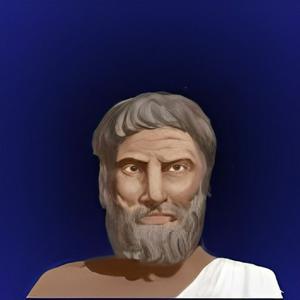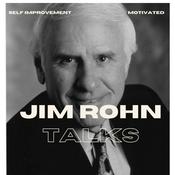154 episódios
- In this podcast we bring you 5 ways to communicate effectively from the philosophy of Aristotle. His philosophy is often referenced as Aristotelianism.
Aristotle extensively explored the art of persuasion and the principles underlying successful communication. He distilled his theories into three crucial components: logos, ethos, and pathos. These elements encompass logic, credibility, and emotion, respectively. According to Aristotle, effective communication requires a harmonious integration of these three modes of persuasion.Furthermore, Aristotle presented a model of communication that offers valuable insights into the communication process itself. Which is why in this video, we bring you five practical ways to communicate effectively, drawing inspiration from the timeless philosophy of Aristotle. 5 ways to communicate effectively from the philosophy of Aristotle are -
01. Use Logical Arguments
02. Establish Credibility
03. Use Emotional Appeals
04. Use Clear And Concise Language
05. Practice Communicating
I hope you enjoyed listening to this podcast and hope these 5 ways to communicate effectively from the philosophy of Aristotle will add value to your life.
Aristotle is a Promethean figure in the history of the world, who lived between 384–322 BC, He is considered "the father” of logic, biology, political science, zoology, embryology, of natural law, scientific method, rhetoric, psychology, realism and even of meteorology. He was first a student of Plato, then, when Plato retired, he left the Academia which Plato founded, and he became the tutor of Alexander The Great, and the two other future kings: Ptolemy and Cassander. He established a library in the Lyceum which helped him to produce many of his hundreds of books on papyrus scrolls. Unfortunately, only a third of his magnificent work has survived. For example, the treatises “Physics”, “Metaphysics”, “Nicomachean Ethics”, “Politics”, “On the Soul” and “Poetics”, have influenced more than two millennia of scientists and theologians alike, both fascinated by his ideas. - In this podcast we bring you 5 ways to improve and manage your self discipline from the philosophy of Aristotle. His philosophy is often referenced as Aristotelianism.
Self discipline can be described as endurance in the face of tempting pleasures or endurance in the face of challenging situations which makes you feel like you want to give in to your basic impulses or give up on your goals. To help you learn ways to improve and manage your self discipline, today we’re bringing you 5 relevant teachings from the philosophy of Aristotle:
01. Believe you have free will
02. Strengthen your moral principles
03. Overcome your desires
04. Be temperate in your reactions
05. Practice self discipline daily
I hope you enjoyed listening to this podcast and hope these 5 ways to improve and manage your self discipline from the philosophy of Aristotle will add value to your life.
Aristotle is a Promethean figure in the history of the world, who lived between 384–322 BC, He is considered "the father” of logic, biology, political science, zoology, embryology, of natural law, scientific method, rhetoric, psychology, realism and even of meteorology. He was first a student of Plato, then, when Plato retired, he left the Academia which Plato founded, and he became the tutor of Alexander The Great, and the two other future kings: Ptolemy and Cassander. He established a library in the Lyceum which helped him to produce many of his hundreds of books on papyrus scrolls. Unfortunately, only a third of his magnificent work has survived. For example, the treatises “Physics”, “Metaphysics”, “Nicomachean Ethics”, “Politics”, “On the Soul” and “Poetics”, have influenced more than two millennia of scientists and theologians alike, both fascinated by his ideas. - In this podcast we will be talking about The 7 ways to manage time from the teachings of Immanuel Kant. Kant. Immanuel Kant is considered to be one of the central Enlightenment thinkers of all time. His philosophy is called Kantianism.
So here are 7 time management tips from Immanuel Kant -
01. Organize yourself
02. Follow through
03. Follow universal principles in your daily activities
04. Schedule time for developing your skills
05. Make time for the small things
06. Make time for your other duties
07. Make time for moral self-development
Hope you enjoyed this audio and find these insights on time management from Immanuel Kant helpful.
Immanuel Kant lived in the 18th century and is considered to be one of the greatest German philosophers and one of the central Enlightenment thinkers of all time. His philosophical revolution was to place the human at the center of the philosophical study of knowledge, morality, and beauty. He deeply believed that reason is the root of morality. His thoughts on the relationship between reason and human experience led to the notion of “procedural humanism” or “Kantian humanism”.
The work of Immanuel Kant is still relevant today as the humanistic values of Western culture are deeply influenced by the Kantian moral philosophy. His philosophy is called Kantianism
The fundamental idea of Kant’s “critical philosophy” – especially in his three Critiques: the Critique of Pure Reason (1781, 1787), the Critique of Practical Reason (1788), and the Critique of the Power of Judgment (1790) – is human autonomy. He argues that human understanding is the source of the general laws of nature that structure all our experience; and that human reason gives itself the moral law, which is our basis for belief in God, freedom, and immortality. 148: 6 Questions That Will Kill Your Overthinking Forever (William Shakespeare’s The Tragedy of Hamlet)
14/2/2026 | 19min6 Questions That Will Kill Your Overthinking Forever (William Shakespeare’s The Tragedy of Hamlet). In this podcast we will be talking about How to Stop Overthinking from the philosophy of William Shakespeare’s The Tragedy of Hamlet.
Hamlet is one of William Shakespeare’s finest and most famous masterpieces. On the surface, it is a classic revenge tragedy. The King of Denmark is murdered, and his son, Prince Hamlet, must kill the murderer to reclaim the throne. In any other play, the hero would grab a sword and the story would be over but Hamlet isn't like other heroes. He is a philosopher, a student, and a man cursed with a brilliant, hyper-active mind. We return to Hamlet because he shows a common human problem: the more we think, the less we act. He represents the kind of paralysis where we believe we are being careful, but are actually doing nothing. Shakespeare describes this state as the “pale cast of thought,” the moment when too much thinking drains the energy and urgency from an idea that once had the power to change a life. So if you feel stuck in your own head, constantly weighing options but never actually making a move it could be because you are suffering from that same "pale cast of thought." which is why we’re going to take a look at the 6 questions we can extract from Hamlet’s tragedy that, if answered correctly, might just put an end to your overthinking for good.
So here are 6 Questions That Will Kill Your Overthinking Forever from the philosophy of William Shakespeare’s The Tragedy of Hamlet.
Question 1: Is This a "Ghost" or a Reality?
Question 2: Am I "Thinking Too Precisely on the Event"?
Question 3: Am I Solving the Problem or Just Watching Myself Think?
Question 4: Am I Waiting for the "Perfect" Kill?
Question 5: Is This "The Ready" or "The Rest"?
Question 6: To Be, or To Seem?
I hope you enjoyed listening to these 6 Questions That Will Kill Your Overthinking Forever from the philosophy of William Shakespeare’s The Tragedy of Hamlet.
Narration/Audio Editing: Dan Mellins-Cohen
https://www.dmcvoiceovers.com
Subscribe To Philosophies for Life https://www.youtube.com/channel/UCp1mRTkVlqDnxz_9S0YD9YQ
Music used: The Travelling Symphony by Savfk - www.youtube.com/@SavfkMusic- Dante’s Inferno - 9 Circles of Mental Hell (And How to Climb Out). In this podcast we will descend into the 9 Circles of "Mental Hell" that you might be creating for yourself, and how to climb your way back to the stars from the philosophy of Dante Alighieri's Inferno.
Dante Alighieri was a 14th century, exiled Italian politician who wrote a poem that terrifies us to this day. It is called The Divine Comedy, but we know its first section best: Inferno. On the surface, it is a tour of the Christian afterlife—a journey down through the nine circles of Hell to see how sinners are punished. But if you strip away the medieval theology, you realize that Dante wasn't just mapping the afterlife; he was mapping the geography of human suffering. Dante begins his story not in Hell, but in a "Dark Wood." He writes: "Midway upon the journey of our life, I found myself within a forest dark, for the straightforward pathway had been lost." This is the psychological state we have all felt. The anxiety. The depression. The moment you wake up and realize you don’t know who you are or where you are going. To get out of this dark wood, Dante cannot climb up the mountain of happiness directly. He has to go down. He has to face the darkest parts of himself first. Hell isn’t a place you go when you die. It’s a headspace. Right now, many of us are walking through Dante’s circles without even knowing it. We build these infernos within our own minds—brick by brick, habit by habit—eventually mistaking our cage for normal life.
So, let’s descend. Here are the 9 Circles of "Mental Hell" that you might be creating for yourself, and how to climb your way back to the stars.
Introduction - 00:00 – 01:51
Circle 1: Limbo - 01:51 – 03:50
Circle 2: Lust - 03:50 – 06:03
Circle 3: Gluttony - 06:03 – 08:30
Circle 4: Greed - 08:30 – 10:45
Circle 5: Anger - 10:45 – 12:37
Circle 6: Heresy - 12:37 – 14:12
Circle 7: Violence - 14:12 – 17:13
Circle 8: Fraud - 17:13 – 21:26
Circle 9: Treachery - 21:26 – 24:24
The Conclusion: The Way Out - 24:24 – 26:12
I hope you enjoyed listening to this podcast and hope these 9 Circles Of "Mental Hell" You Create for Yourself from the philosophy of Dante Alighieri's Inferno will add value to your life.
Narration/Audio Editing: Dan Mellins-Cohen
https://www.dmcvoiceovers.com
Subscribe To Philosophies for Life https://www.youtube.com/channel/UCp1mRTkVlqDnxz_9S0YD9YQ
Mais podcasts de Ensino
Podcasts em tendência em Ensino
Sobre Philosophies for Life
Philosophies for Life is all about giving ancient wisdom for modern living.
We are dedicated towards giving out life-changing philosophical ideas that will help you improve all the aspects of your life - spirituality, finance, relationships, mental and emotional.
Sítio Web de podcastOuve Philosophies for Life, Páginas com Graça e muitos outros podcasts de todo o mundo com a aplicação radio.pt

Obtenha a aplicação gratuita radio.pt
- Guardar rádios e podcasts favoritos
- Transmissão via Wi-Fi ou Bluetooth
- Carplay & Android Audo compatìvel
- E ainda mais funções
Obtenha a aplicação gratuita radio.pt
- Guardar rádios e podcasts favoritos
- Transmissão via Wi-Fi ou Bluetooth
- Carplay & Android Audo compatìvel
- E ainda mais funções


Philosophies for Life
Leia o código,
descarregue a aplicação,
ouça.
descarregue a aplicação,
ouça.






































